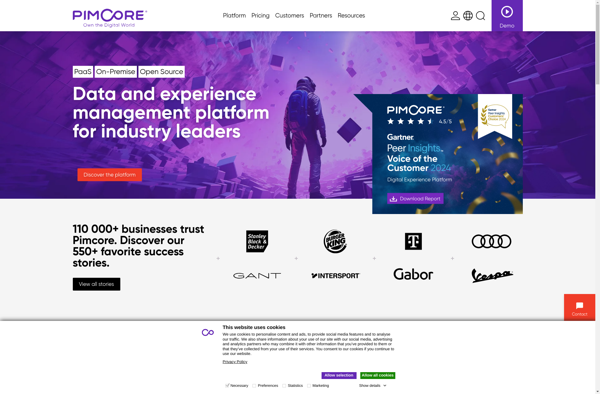Qcodo

Qcodo: Open-Source PHP Framework
A Model-View-Controller PHP framework with features like automatic CRUD interfaces, ajax components, user authentication tools, and themes.
What is Qcodo?
Qcodo is an open-source PHP framework designed to help developers quickly build database-driven web applications. It follows the Model-View-Controller (MVC) software architecture pattern and focuses on rapid and simplified development and deployment.
Some key features of Qcodo include:
- Automatic generation of CRUD (Create, Read, Update, Delete) interfaces for working with databases
- Ajax-enabled UI components like grids, forms, tabs etc. for responsive web apps
- Tools for user authentication, authorization and session management
- A theming system for customizing look-and-feel
- Code generation capabilities to speed up repetitive coding tasks
- Integration of jQuery for simplified JavaScript development
- Support for MySQL, PostgreSQL, SQLite, SQL Server and Oracle databases
Qcodo aims to reduce the time required for common web application development tasks by providing reusable components and code generation functionalities out-of-the-box. This allows developers to focus on building application-specific functionality rather than rewriting boilerplate code.
Qcodo Features
Features
- MVC architecture
- Automatic CRUD interfaces
- Ajax components
- User authentication tools
- Themes
- Code generation tools
- Database abstraction layer
- Templating engine
- Form builder
- Caching
- Localization support
Pricing
- Open Source
Pros
Cons
Official Links
Reviews & Ratings
Login to ReviewThe Best Qcodo Alternatives
Top Development and Web Application Frameworks and other similar apps like Qcodo
Here are some alternatives to Qcodo:
Suggest an alternative ❐Zend Framework

Symfony

Pimcore

Ruby on Rails

Yii Framework

Agile Toolkit

CakePHP

FuelPHP

Akelos
